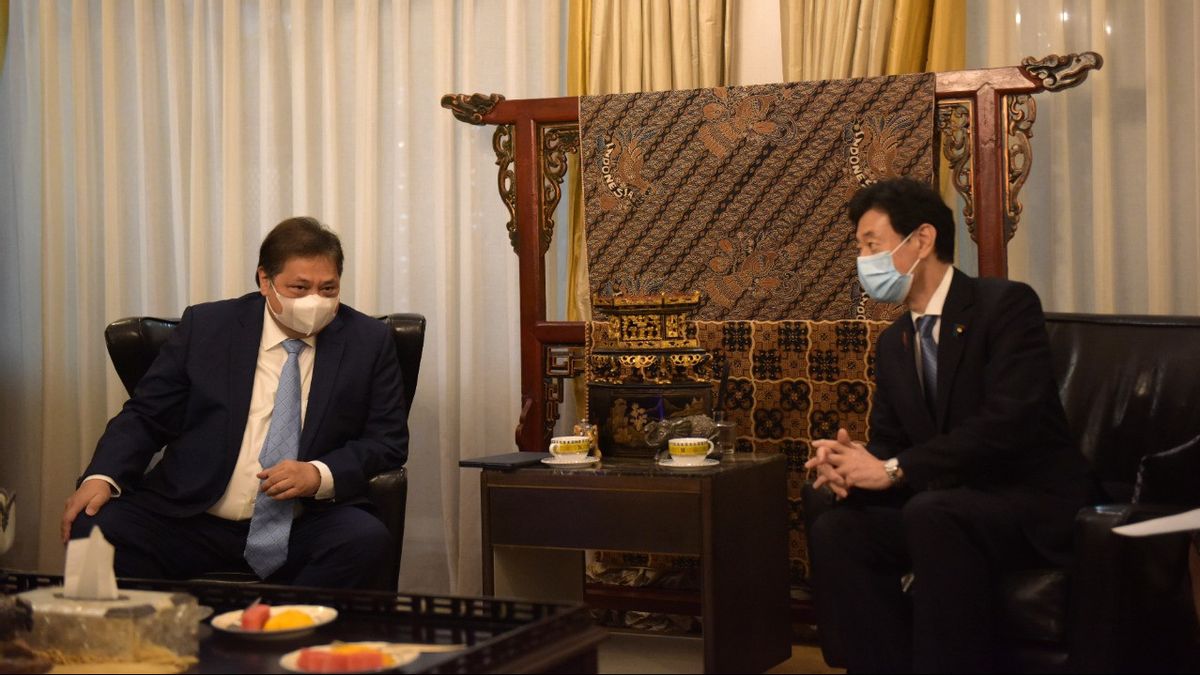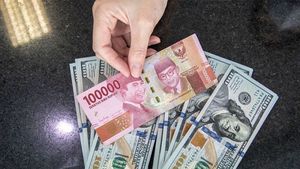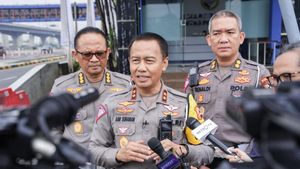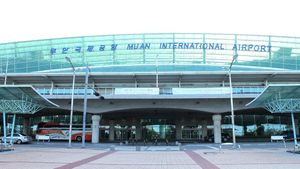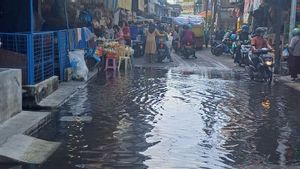JAKARTA - The government has implemented various policies to balance aspects of health, social and economic in overcoming the impacts caused by the pandemic by emphasizing the smooth running of activities and the pace of the economy, tightening health protocols, and accelerating vaccinations.
Meanwhile, Indonesia's close cooperation with other countries in the world, including Japan, has also created a positive trend of recovery in various sectors affected during the pandemic.
The total value of Indonesia's trade with Japan in 2021 was recorded at US$32.5 billion and the value of Japanese investment in 2021 reached US$23 billion.
Under the coordination of the Minister of Energy, Trade and Industry of Japan (METI) Nishimura Yasutoshi who was just appointed Minister on August 10, Indonesia-Japan Economic Partnership Agreement (IJ-EPA) there have been many achievements in cooperation and several agreement updates.
All of this is to increase the export of Indonesian tuna tuna at more competitive rates than other ASEAN countries, increase the import duty-free quota to 4,000 tons per year for banana exports, and change the requirements for exemption from import duties and increase quotas for exports of Nanas fruit.
Previously, the meeting between the President of the Republic of Indonesia and the Japanese PM last July agreed that the IJ-EPA update could be completed and announced at the November G20 Summit in Bali.
"It is hoped that Japan can consider import duty rates for several commodities such as tuna fish and bananas and pineapple," said Japanese Coordinating Minister for Economic Affairs Airlangga Hartarto during a meeting with Japanese Minister of Economics, Trade and Industry (METI) Nishimura Yasutoshi on Saturday, September 3.
Coordinating Minister Airlangga appreciated the increase in the commitment of Japanese private investment as a result of the meeting between the President of the Republic of Indonesia and the CEOs of Japan of US$5.2 billion, including the development of IKN, the automotive industry, the electric battery industry, the steel industry, the construction of power plants, and transportation infrastructure.
Several Japanese automotive companies have also increased investments such as Mitsubishi Motors which is committed to making Indonesia a vehicle export hub, especially to produce Electric Vehicle-based vehicles with plans to invest additional IDR10 trillion from 2022-2025.
In addition, Toyota Group has also planned an additional IDR27.1 trillion investment in the 2022 to 2026 time span.
Coordinating Minister Airlangga also asked Japan's opinion regarding the Indo-Pacific Economic Framework (IPEF).
IPEF is an initiative of the United States launched by President Biden on May 23, 2022 with 14 countries.
"The IPEF is certainly very useful for Indonesia as the largest economy in ASEAN, it is important to maintain a balance between profit and regulation," said Minister Nishimura.
On this occasion, Airlangga did not forget to convey the development of Indonesia-Japan cooperation in infrastructure development, such as the Patimban port which was carried out in three stages with a financing value of around Rp35 trillion to 2027, the Patimban port access toll road worth USD 312 million, and the Jakarta North-South MRT (HI-Ancol).
The palm oil sector was also discussed at the meeting where the Government of Indonesia hoped that the Government of Japan could receive the Indonesian Sustainable Palm Oil (ISPO) Chain certification.
This is expected to encourage the increase in exports of palm oil products to Japan.
Currently, Japan is waiting for the New ISPO tour regulations that regulate the downstream of the Indonesian palm oil industry.
"Indonesia guarantees that the sustainable aspects of this palm oil plant are in accordance with what is required by Japan under the feed in tariff (FIT) scheme," said Coordinating Minister Airlangga.
Closing the meeting, Coordinating Minister Airlangga discussed the Regional Comprehensive Economic Partnership (RCEP) and Minister Nishimura congratulated the ratification.
RCEP is the largest trade bloc initiated by Indonesia when it was Chair of ASEAN 2011.
"RCEP will provide great benefits and strengthen economic cooperation in the Indo-Pacific region," said Minister Nishimura.
Minister Nishimura thanked the Indonesian government because products and technology from Japan were well received by the Indonesian people and invited them to jointly support each other in the success of the G20 this year.
He also conveyed Japan's attention to the policy of regulating imports of iron and steel so that efforts could be made even better because of the importance of these products.
The Indonesian government itself is preparing a commodity balance in the context of issuing a steel product import permit which will be implemented in 2023.
The English, Chinese, Japanese, Arabic, and French versions are automatically generated by the AI. So there may still be inaccuracies in translating, please always see Indonesian as our main language. (system supported by DigitalSiber.id)
